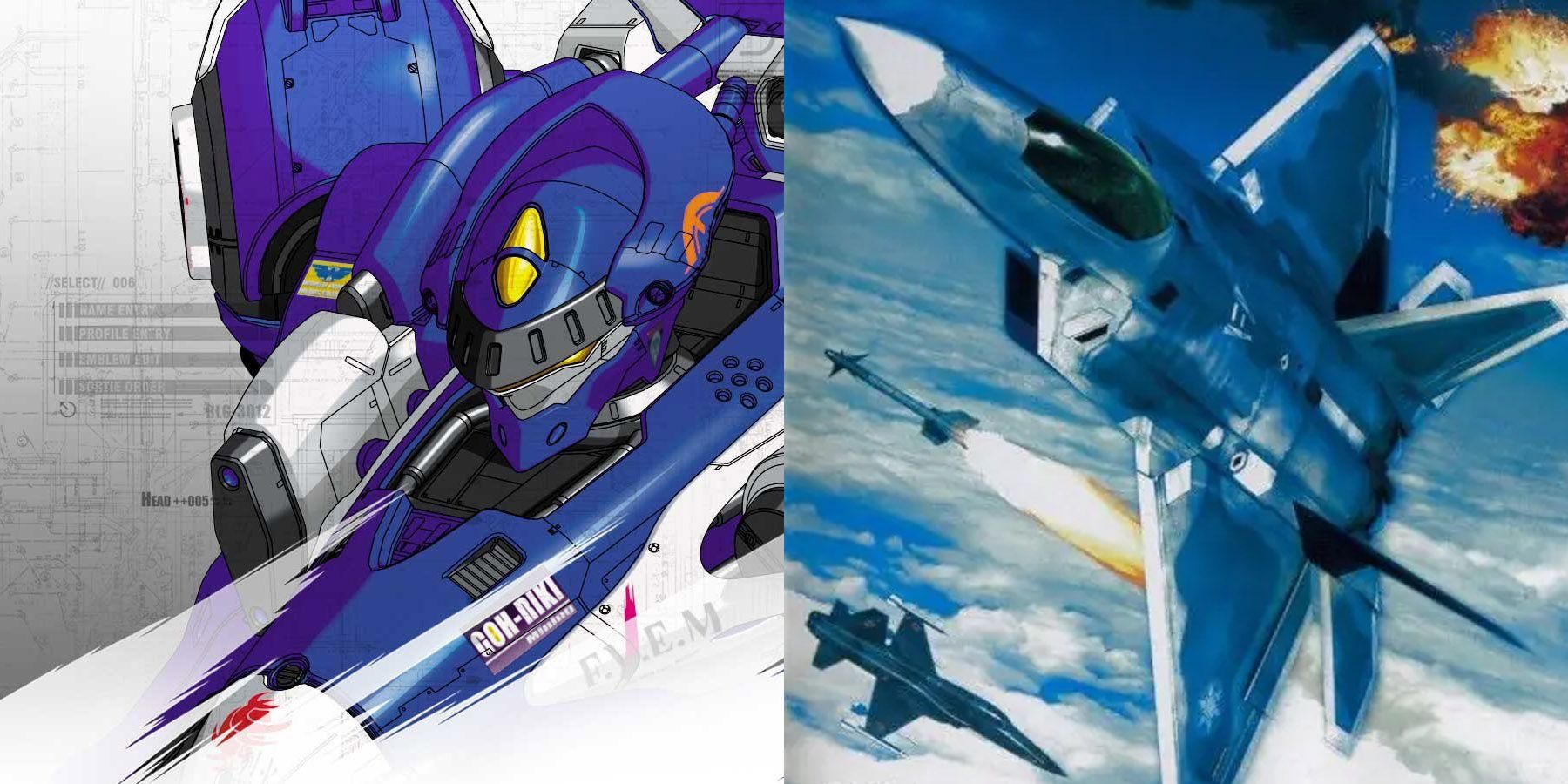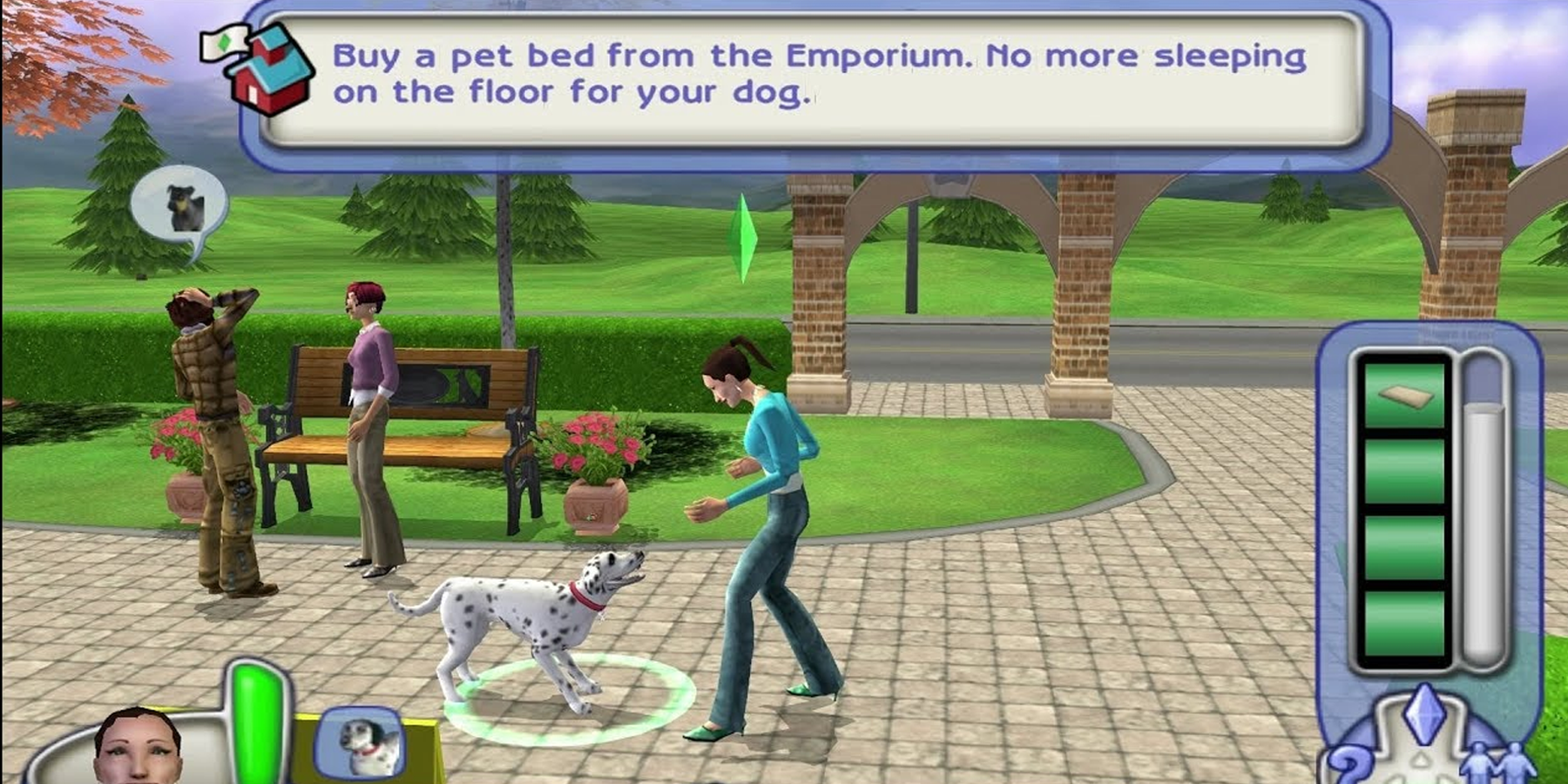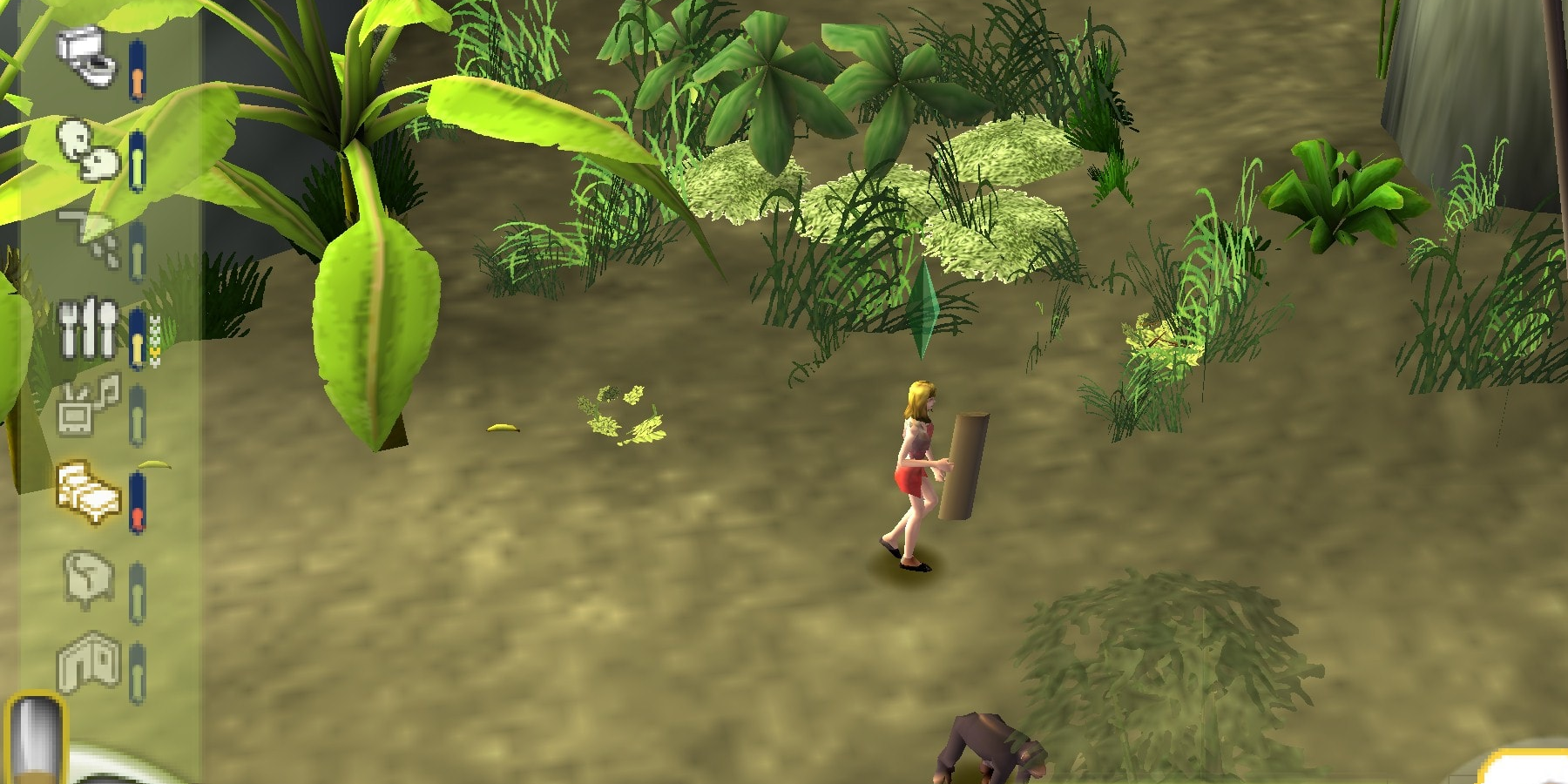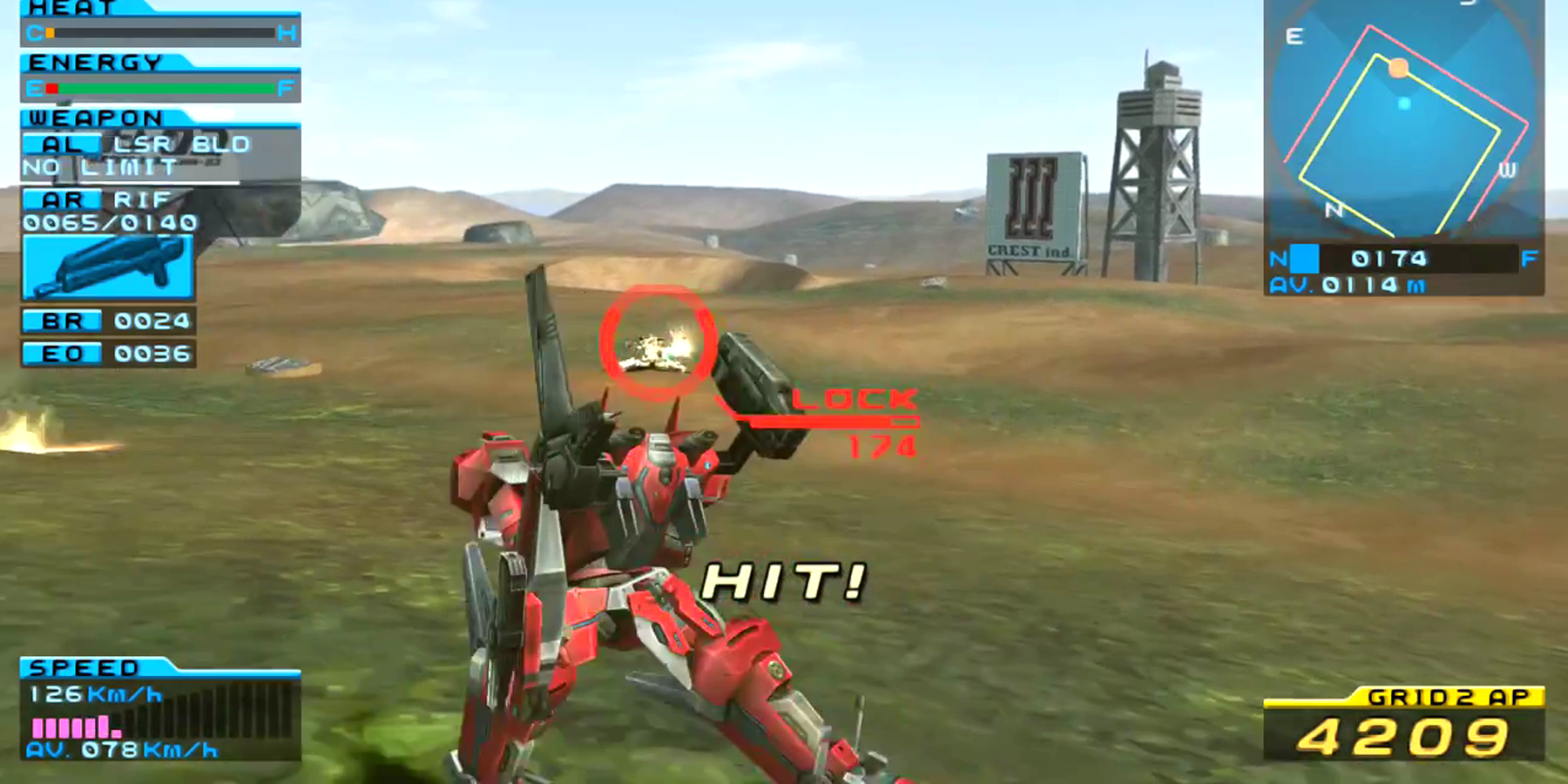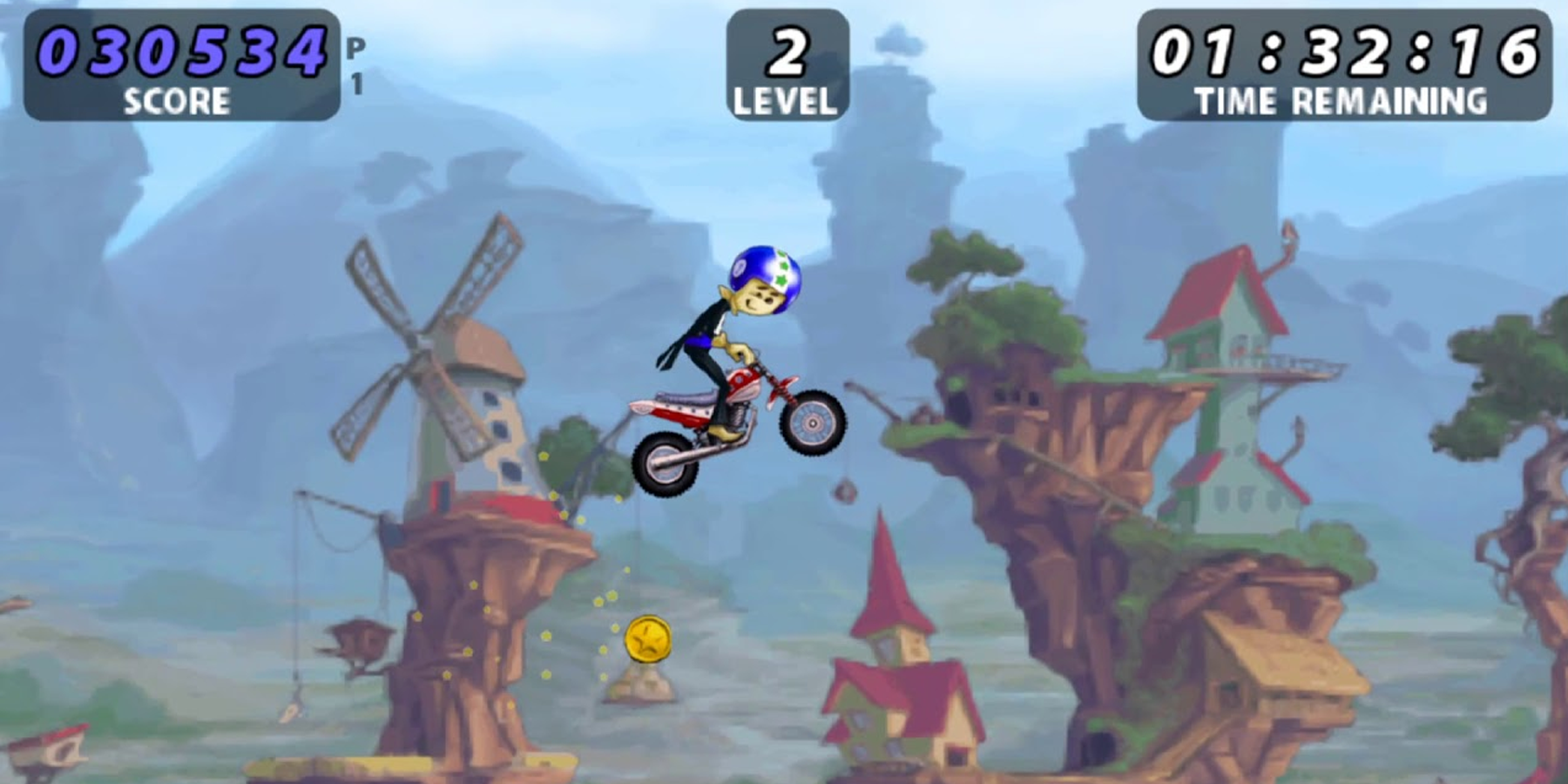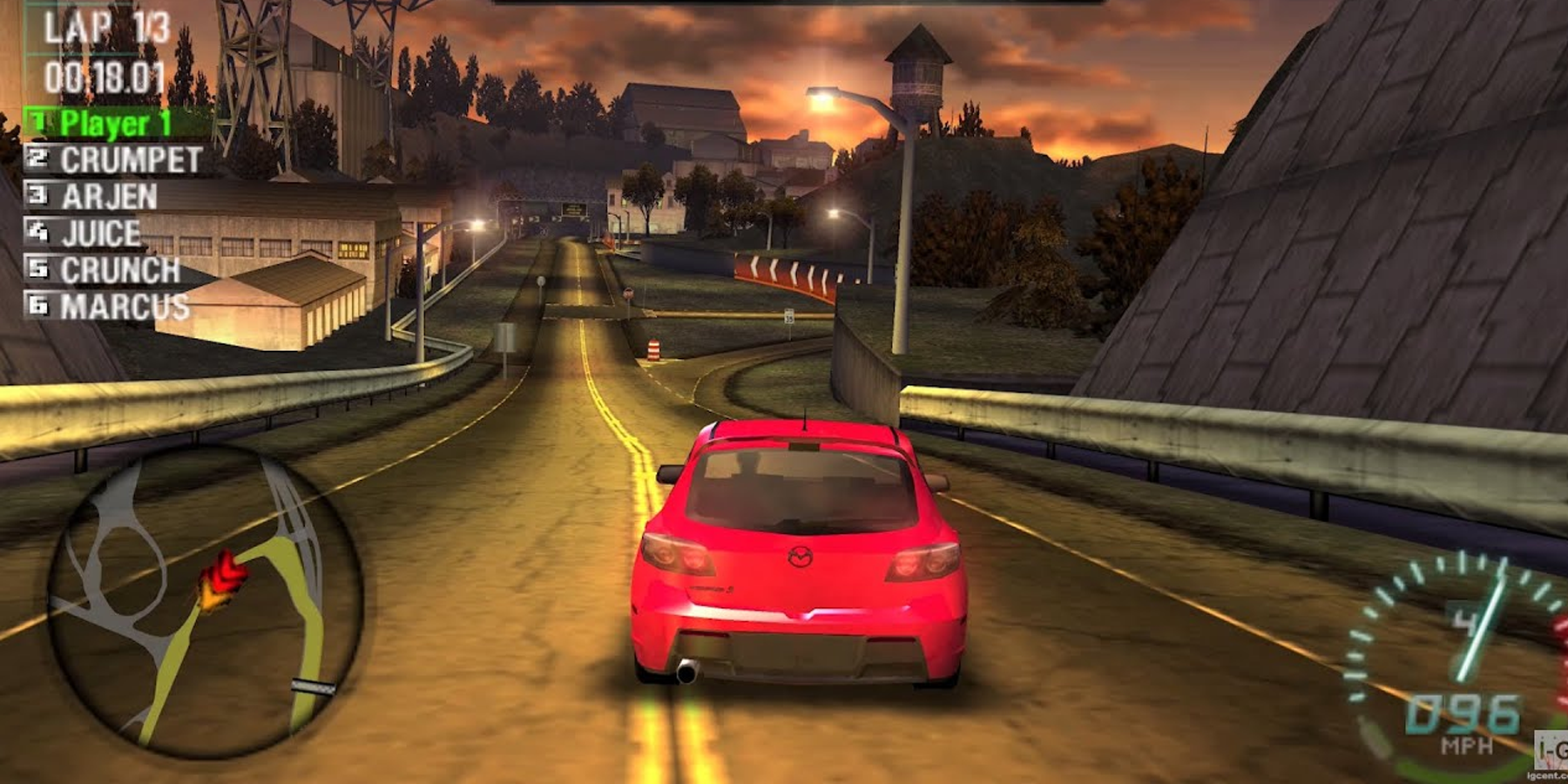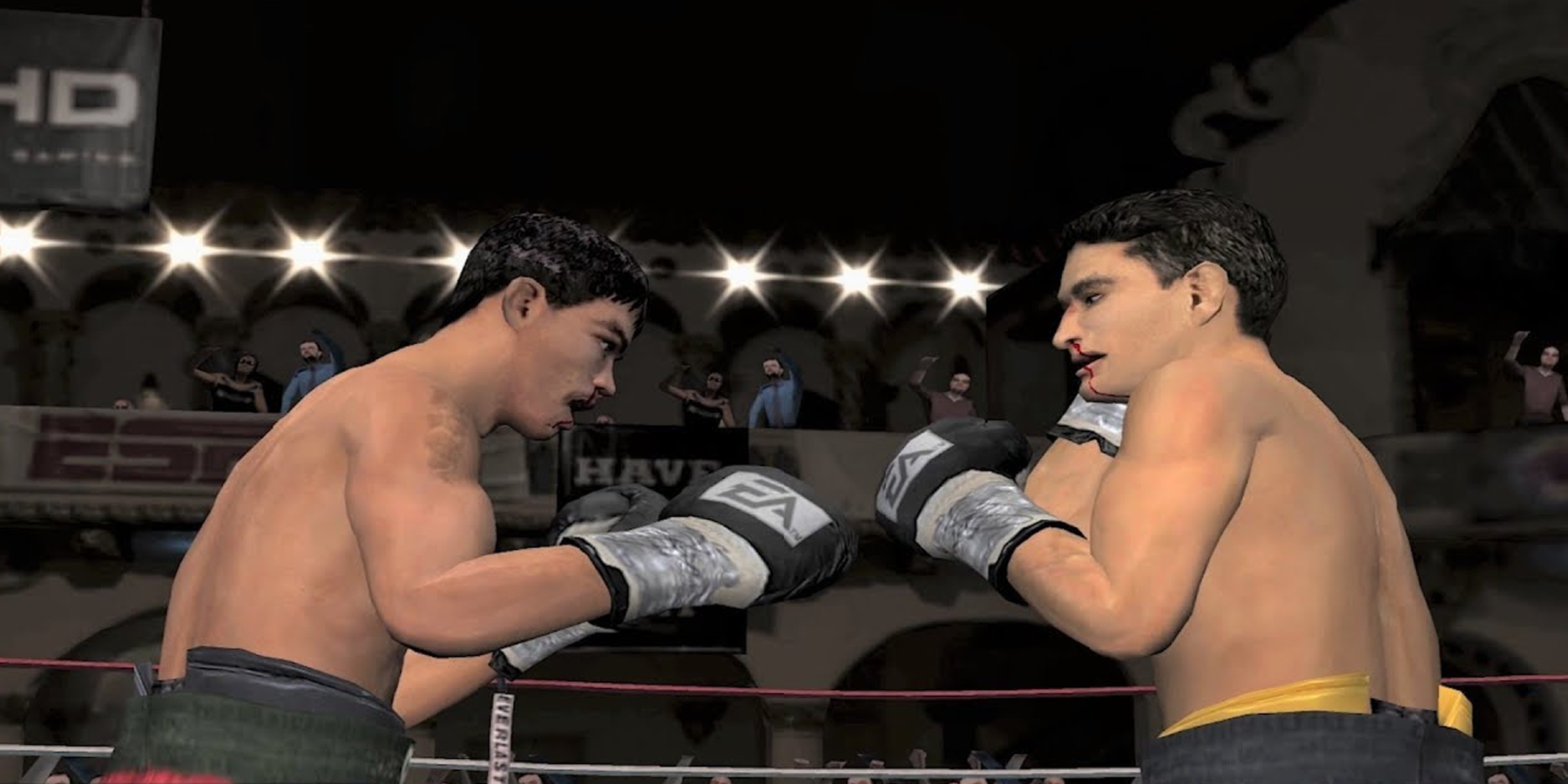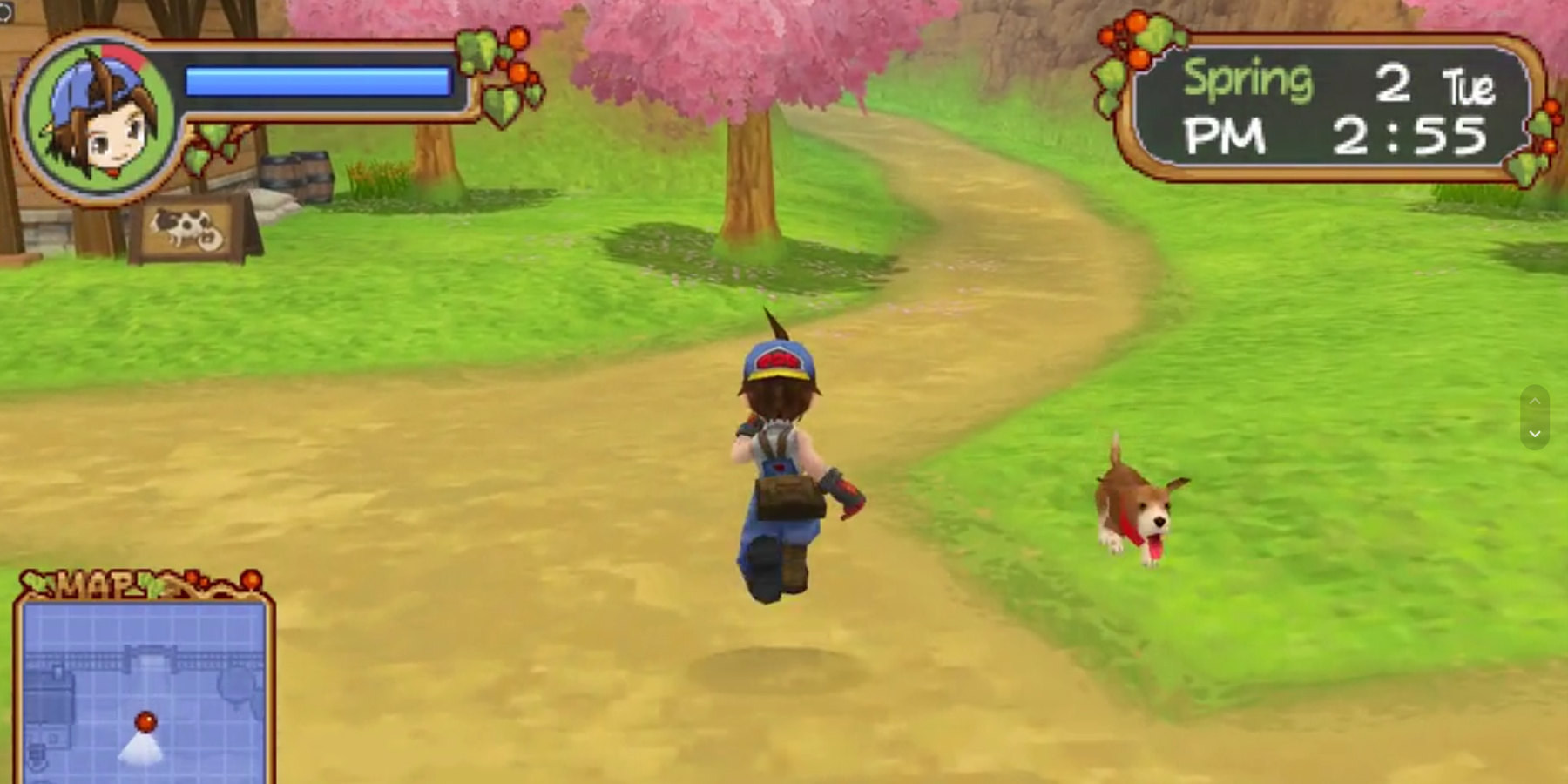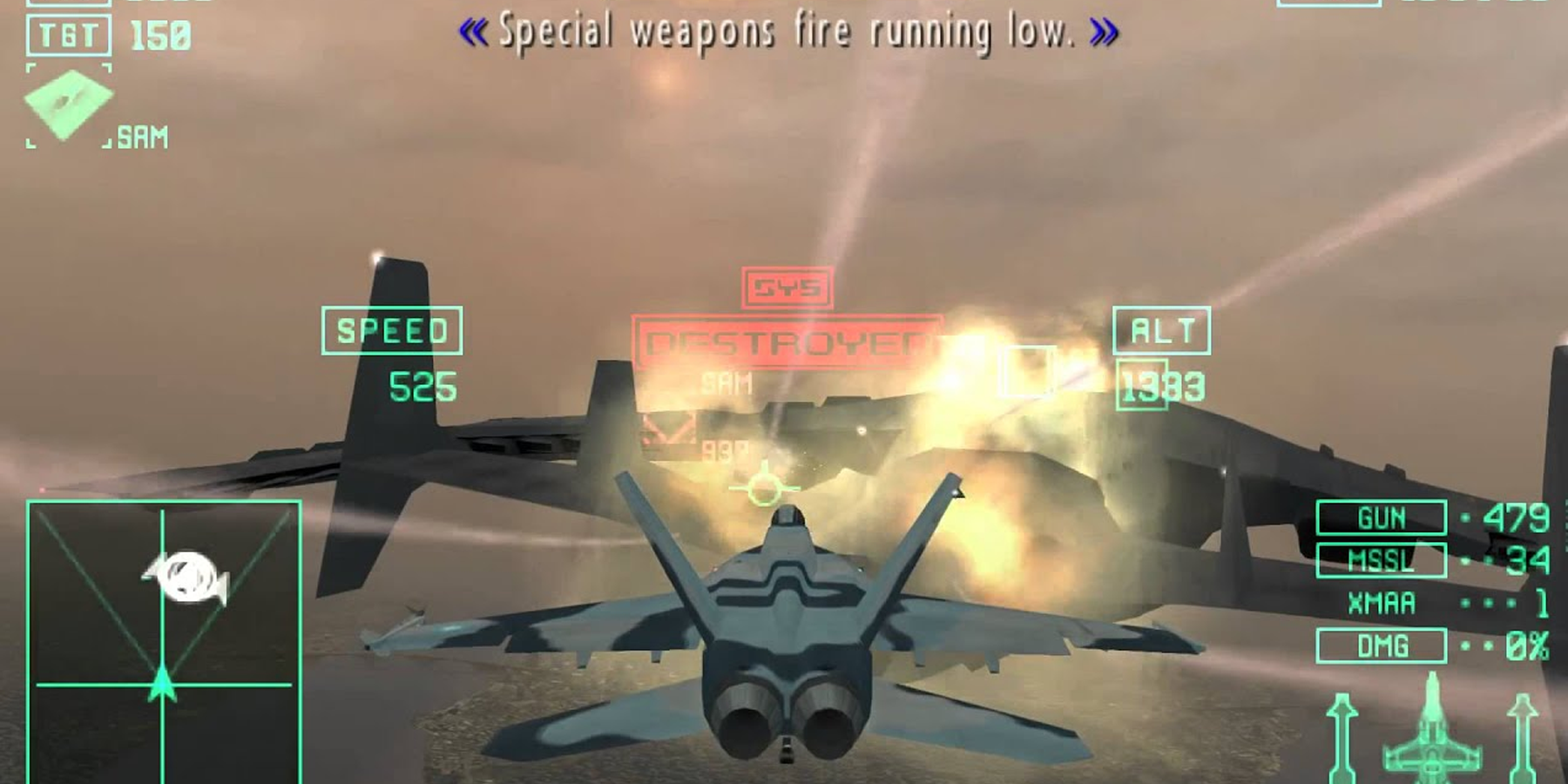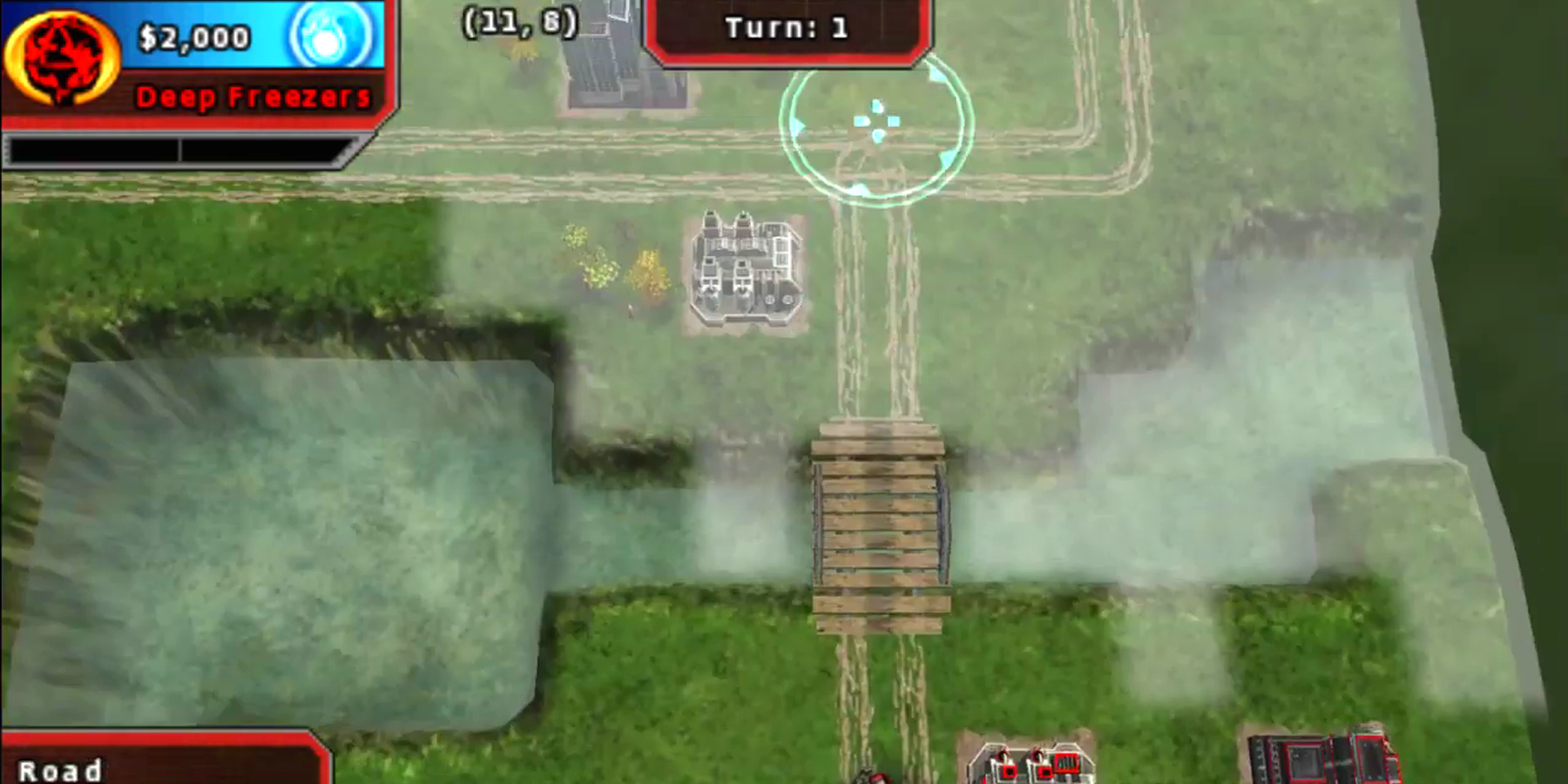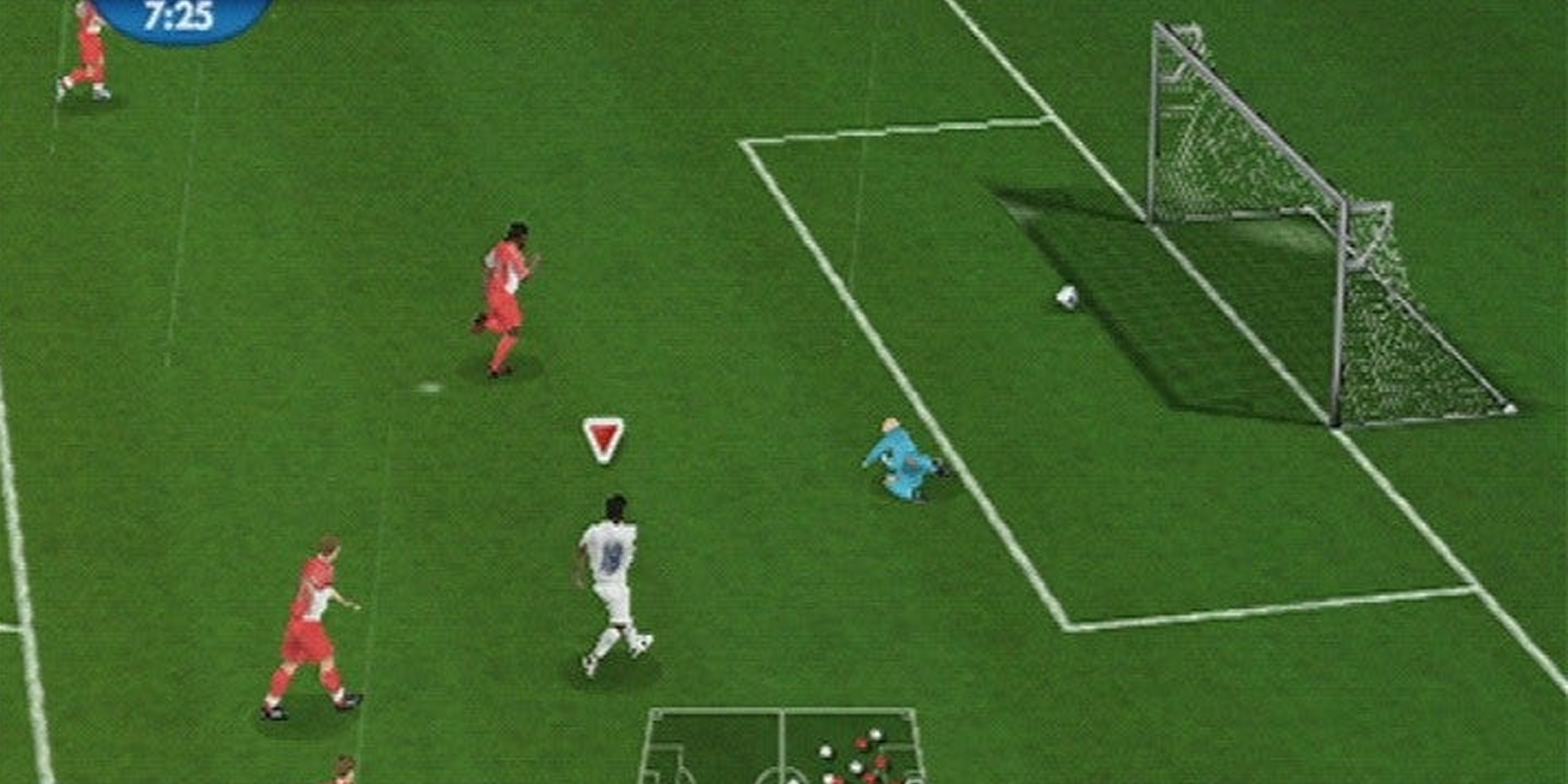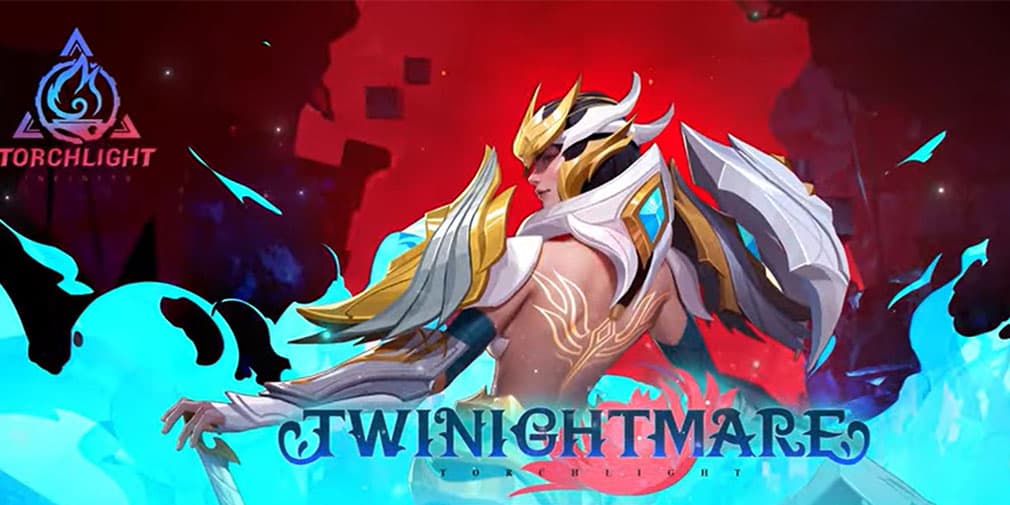Highlights
- The PlayStation Portable (PSP) offered high-definition graphics and action-packed gameplay that surpassed its competitors like the Game Boy and the Nintendo DS.
- The PSP had a range of simulation games that allowed players to control sports teams, manage farms, survive on islands, and command armies on the go.
- Some of the top simulation games for the PSP include The Sims 2: Pets for its focus on domesticated animals, Thrillville: Off The Rails for its accessible theme park management, and Harvest Moon: Hero of Leaf Valley for its expanded features and marriage system.
Being a handheld console, the PlayStation Portable paved the way for some of the highest-definition experiences on the go in an era when the likes of the Game Boy and the Nintendo DS couldn’t compete in terms of graphics and performance. As a result, the PSP provides action-packed gameplay courtesy of hits such as Crisis Core and Kingdom Hearts: Birth By Sleep that allowed players to have fun even without the presence of the then-hit PS2.
Simulation Games For Sci-Fi Fans
From managing colonies to crafting spaceships, here are the best simulation games for fans of science fiction.
However, the PSP didn’t only provide breathtaking graphics and action scenes that other handhelds had yet to achieve at the time. Some PSP titles provided players with simulation games that allowed them to control sports teams, farm management, island survival, and even field entire armies wherever they go. However, just which of the PSP’s simulation games provided the best experiences for gamers?
10 The Sims 2: Pets
Metacritic Score: 57
The Sims 2
- Released
- September 14, 2004
- Genre(s)
- Life Simulation
Bringing man’s best friends to a handheld life sim is pulled off perfectly by The Sims 2: Pets, upgrading the portable Sims 2 experience with the option of adopting and caring for furbabies. Unlike its original counterpart, The Sims 2: Pets for the PSP does lack features that made the PC version more memorable, such as werewolves and ghosts, pet jobs and competitions, as well as exclusive interactions.
However, The Sims 2: Pets and its focus on domesticated animals adds a layer that enhances the depth of the feature-limited handheld port, making this a more optimal life sim compared to the original The Sims 2 for the PSP. Included within building options are exclusive pet furnishings such as litter boxes and kennels, while social interactions now include improving relationships with the player Sim’s pets and those owned by their neighbors.
9 The Sims 2: Castaway
Metacritic Score: 64
Players who want a handheld survival sandbox without stressful raids and combat may appreciate The Sims 2: Castaway. In this PlayStation Portable expansion for The Sims 2, players are shipwreck survivors who stumble upon an island they must transform into their new home. As with other survival sims, Castaway offers environments with various resources and crafting options that allow players to create food, tools, and makeshift furniture. As they explore the island, players get reunited with their lost crew and discover the island’s secrets.
Like other titles in The Sims, players also need to pay attention to the stats of their Castaway characters, perhaps more so now that they have to acquire and process food and resources manually. Being an open-ended game, Castaway doesn’t have a storyline but instead challenges players to create a thriving society despite managing limited resources. The preference for resource management and colony survival over hardcore action is a reprieve from modern-day survival-action titles such as Ark: Survival Evolved.
8 Armored Core: Formula Front
Metacritic Score: 66
Touted nowadays as FromSoftware’s Dark Souls but for mecha, Armored Core: Formula Front takes a stark departure from Armored Core’s “corporate wars in the future” theme in favor of a mecha-building sim. Taking place in a timeline where the Formula Front is a tournament that pits AI-controlled Armored Cores (u-ACs) against each other, players take the role of an Architect as they and their custom-made team aim to become the competition’s top architect.
This Armored Core title for the PlayStation Portable outshines traditional mech games with more precision controls. When players customize their mecha, specific parts and AI systems affect not just their u-AC’s damage output but also their speed and reaction time. Players can choose to spectate combat and adjust their u-AC’s AI programming or manually take on opponents, seeing for themselves how the minutest effects of their adjustments can affect gameplay as a whole.
7 Thrillville: Off The Rails
Metacritic Score: 72
Serving as the sequel to what might be one of the best theme park sims on consoles, Thrillville: Off The Rails takes the unique “hands-on” approach of the first Thrillville game and improves upon both visitor AI and theme park management components. As with the base game, in Thrillville: Off The Rails, players create characters that manage the Thrillville theme park. While a meta-plot involves competition from Globo-Joy trying to sabotage the player’s operations, much of the game revolves around making the best theme park experiences possible for visitors.
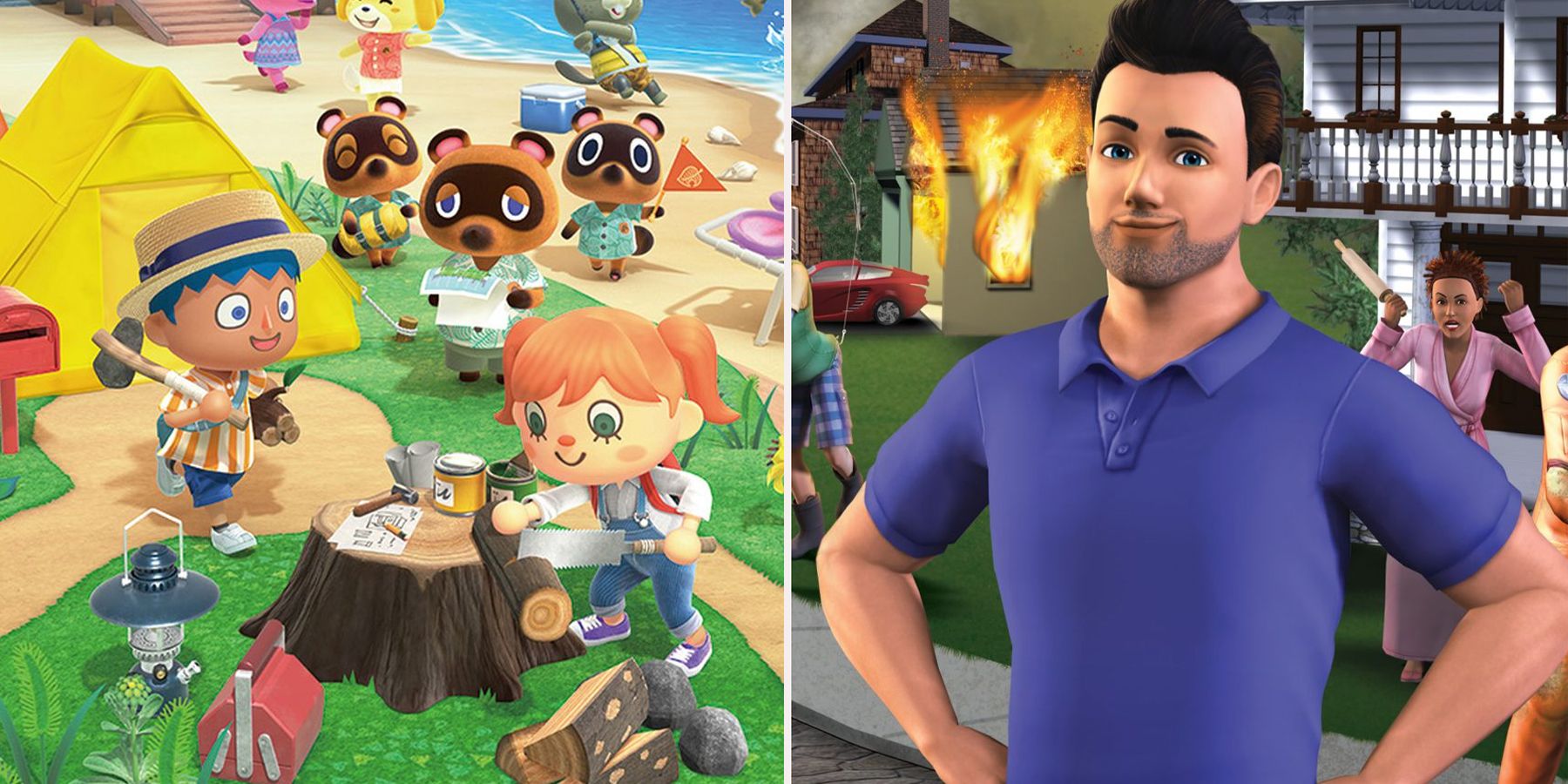
The Best Real Life Simulation Games, According To Metacritic
Based on Metacritic scores, these are the best of the best real-life simulation games.
Unlike typical theme park sims, Thrillville: Off The Rails allows players to partake in the same rides they create and manage. Depending on the age of Thrillville characters, players may even interact and flirt with other visitors. However, making rides is where the game shines, as its accessible ride manager can make custom rides much easier while maximizing the PSP’s limited hardware and controls.
6 Need For Speed: Carbon
Metacritic Score: 73
Need For Speed: Carbon
- Released
- October 31, 2006
- Developer(s)
- Electronic Arts
Among Need For Speed entries on the PSP, Need For Speed: Carbon has the most unique take on its simulation mechanic. Instead of sticking to the typical “lone underground racer” motif common in most entries, Need For Speed: Carbon takes things further by introducing racing crews. On top of the class-based car division, traditional police pursuits, and new game modes such as canyon races, Need For Speed: Carbon spices things up with large racing events that feature three-man teams.
When racing with teammates, Need For Speed: Carbon’s simulation kicks in as it “dramatizes” the idea of racing with companions. Not only does the player have a racing role and specialty, but so too do their respective teammates. With the right combination of wingmen, players of this PlayStation Portable game can have crew members that can spot shortcuts in races, decrease heat from the police, or even boost their speed while tailing them. Being in racing crews and participating in racing events have territories at stake, transforming Carbon into a pseudo-gang war fought with cars.
5 Fight Night Round 3
Metacritic Score: 74
Despite its premise as a sports fighting game, Fight Night Round 3 transitions from a standard sports game into a complex boxing simulator. Key improvements from Round 2 are the inclusion of playable iconic fights via ESPN Classics and a career mode that takes either a known boxer or a player character through weight ranks as they gain popularity. However, where Fight Night Round 3 shines the most is in its gameplay, which adopts Round 2’s control scheme but levels it up for the PlayStation Portable.
At its core, Fight Night Round 3’s fights no longer feature a HUD, with fighters instead displaying rather realistic shifts in body language and stance to indicate their status. Players also use both analog sticks and triggers to simulate punches, with the intensity and momentum of stick turns coupled with the right presses determining how punches are delivered. This level of detail in a portable title can make Fight Night Round 3 a rather challenging cross between sports sim and fighting game.
4 Harvest Moon: Hero Of Leaf Valley
Metacritic Score: 74
Set in the eponymous Leaf Valley, players of Harvest Moon: Hero of Leaf Valley need to unite its citizens and create a bustling farm before the Funland Corporation transforms the small town into an amusement park. While the premise of Harvest Moon: Hero of the Valley makes it a port of the similarly-themed Harvest Moon: Save the Homeland for the PS2, Hero of the Valley breaks away from “limited-feature” ports by being an upgraded version of its predecessor.
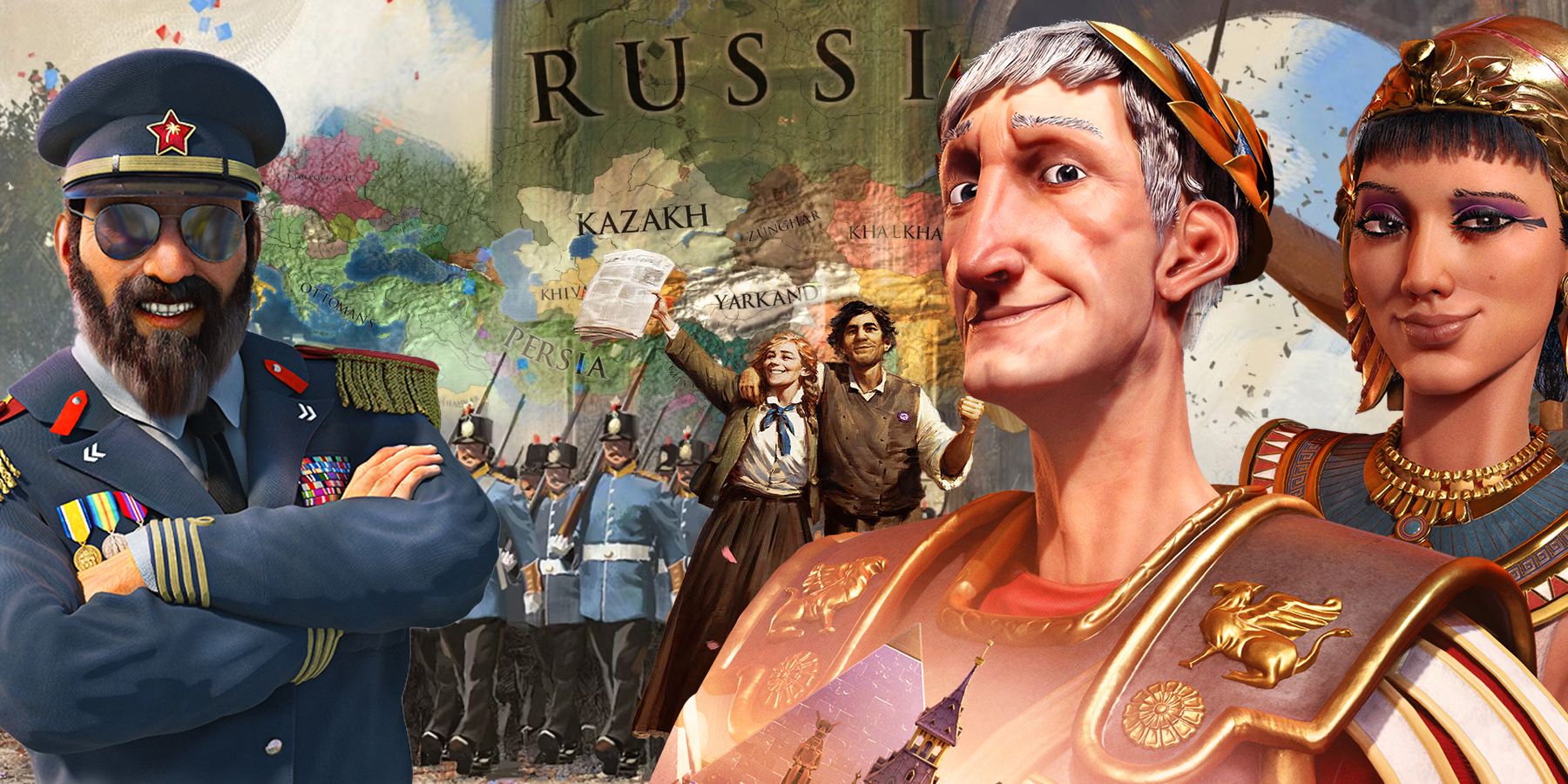
Best Government Simulation Games, Ranked
There are several simulation games where players can play the part of a government, and these are the best of them all.
As with other Harvest Moon titles, Hero of Leaf Valley plays mostly like a farm sim where players plant and tend to crops, mine ores and gems, as well as raise animals. Key changes to the game revolve around the one-year time limit to save Leaf Town, as well as a sensitivity to the welfare of the animals the players are in charge of. Unlike Save the Homeland, its PSP upgrade brings back the Marriage System, allowing players to marry bachelors and bachelorettes of their choice. Unique to the game is its endgame, where on top of buying Leaf Town for 50,000 G, players have 15 other ways of saving the town that involve different characters.
3 Ace Combat X: Skies Of Deception
Metacritic Score: 75
Players can now blaze through the skies in their favorite aircraft with Ace Combat X: Skies of Deception, with the title being the first Ace Combat game to grace the PSP. Taking place in the Aurelian War in 2020, players take the role of Gryphus 1 of Aurelia as they repel invaders from Lesath, all the while journalist Albert Genette uncovers a conspiracy about the conflict through inter-mission cutscenes. While playing similarly to Ace Combat 4: Shattered Skies, missions in Ace Combat X emphasize destroying certain targets.
However, where Ace Combat X shines is its introduction of Tuning, where players can upgrade parts of their aircraft to improve performance. Since its introduction in Ace Combat X, Tuning has become a staple in other games in the franchise. Courtesy of Tuning, players can micromanage minute aspects of their performance, further allowing their aircraft to move in ways more tailored to their playstyles. Unlike older aircraft sim games, Ace Combat X for the PSP brings a technical maneuvering experience on a portable platform.
2 Field Commander
Metacritic Score: 77
Compared to other turn-based strategy games for the PSP, Field Commander maximizes the handheld’s limitations to deliver more tactical ways of fielding troops into combat. As players fight the Shadow Nation criminal empire, their role as a new recruit in the ATLAS International Military Alliance lets them control Divisions that offer unique perks and setbacks to military units. Soldiers and vehicles, staples of turn-based military games, exist in Field Commander with limited supplies, encouraging active development.
Much of the game’s interactions occur on map squares of different terrain types, each offering different bonuses and functionality to players. Not only do map terrains give advantages and disadvantages to unit types, but some map terrains also boost earnings, while others can be blockaded to prevent movement. Unlike other strategy titles, Field Commander’s take on military simulation makes terrain as much of an active component as units, something not immediately encountered in other handheld titles.
1 FIFA 10
Metacritic Score: 83
FIFA 10
- Released
- October 20, 2009
- Developer(s)
- EA Canada , Exient Entertainment , HB Studios , Sumo Digital
Despite its 2009 release, FIFA 10 remains a dream come true for football fans who want to take their game on a portable platform. Key to the FIFA 10 sports sim for the PlayStation Portable is its revamped Manager Mode that boasts more realistic player control, as well as Virtual Pro that lets players create a custom footballer to transform into a star. The Virtual Pro is particularly transferable from the staple Be A Pro custom seasons into the Manager Mode career, and the more free-form Lounge, Tournament, and Kick-Off Modes.
Moreover, much of FIFA 10’s best changes shine in its Manager Mode. Aside from the Total Football Experience which gives a comprehensive list of news updates on activities of other leagues, an Assistant Manager will now automatically take care of squad rotations and line-ups. The game itself has a better take on calculations, wherein simulated matches take better account of team strength. Trades now consider both money and team practicality, and performance improvements now depend on base stats.
